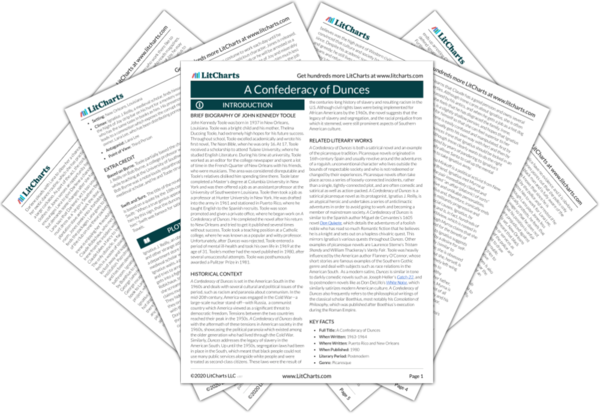This introduces the reader to Ignatius’s aversion toward human intimacy. Ignatius is a misanthropic character and tends to despise others or feel superior toward them. Ignatius is also extremely conservative—not only in his political and philosophical views, but also in that he dislikes change—and even a short trip out of the city has proven to be too much for him.
Heart of Darkness is a novel by Joseph Conrad about a man who journeys into an Africa colony under European rule in the late 1900s. The novel contrasts the war-torn, colonized country the man travels into with the order of the narrator’s previous life. Ignatius relates to this idea because he sees any alteration in his circumstances, or in society, as a descent into chaos. Toole uses this comparison to comically highlight how dramatic Ignatius is about change.
